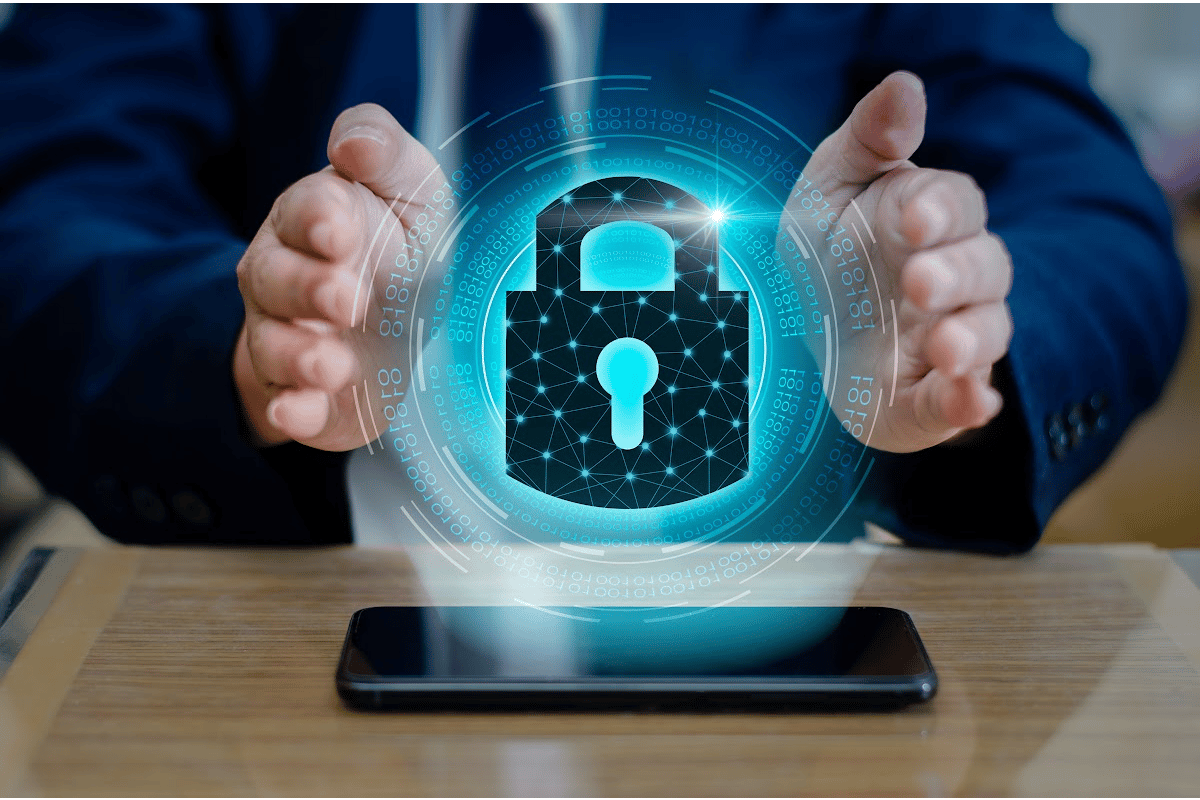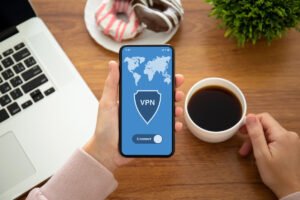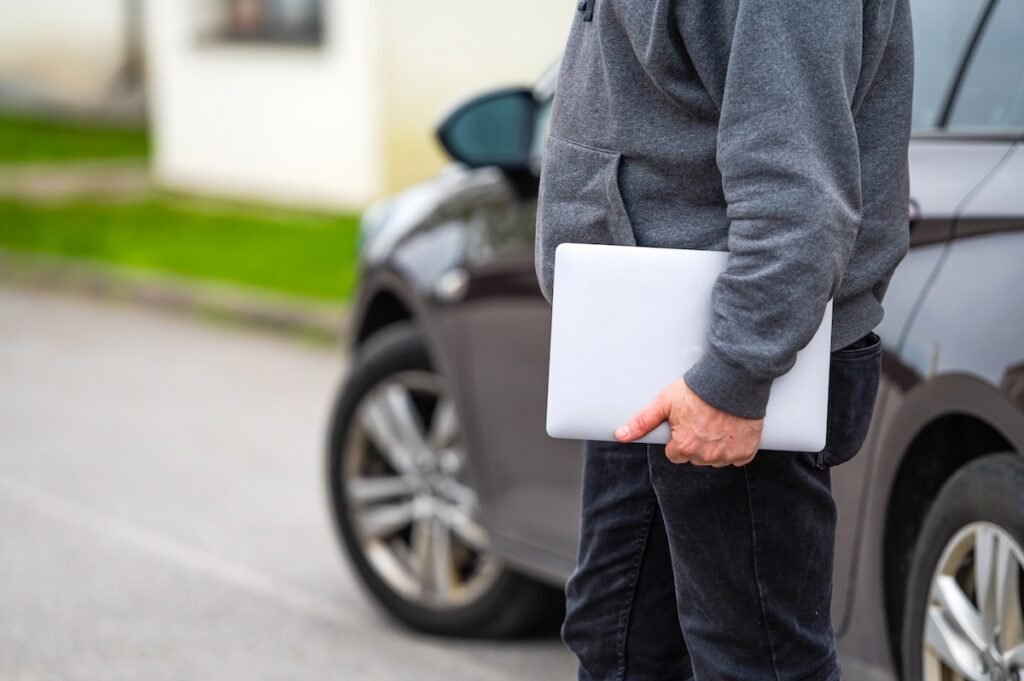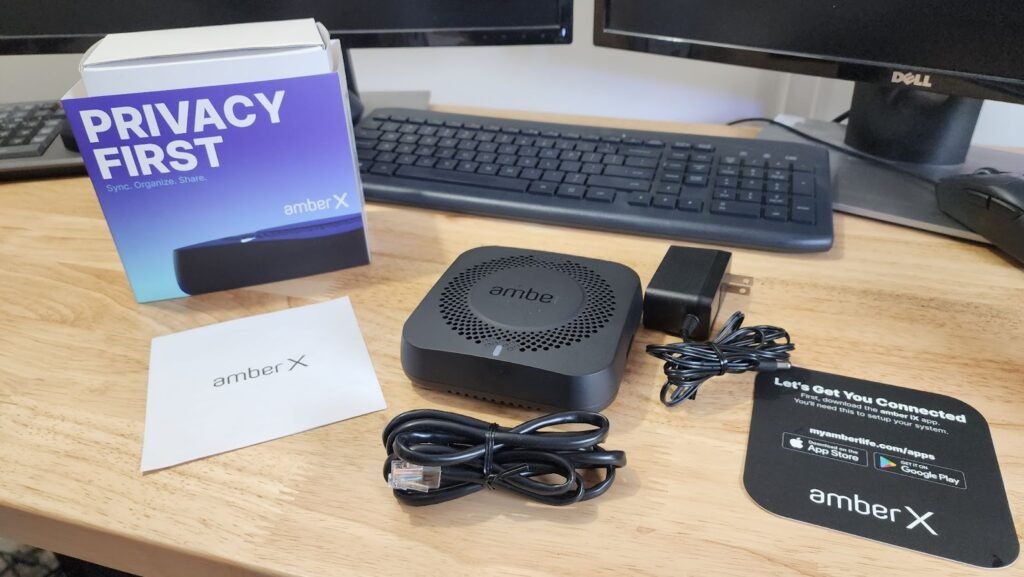This is the age of digital media, and smartphones have become an integral part of our lives. Since they are portable, they are the most common type of digital tool and mobile data is gobbling up the data market share everywhere. Being a prominent part of our lives, you cannot ignore the demand for securing your smartphone. This is a massive priority and one you need to take seriously.
Since smartphones are becoming more advanced day by day, people use this device for multiple purposes. Just stop and think about how and where you use your smartphone? You use smartphones to access the internet, for business purposes, and to store personal data. Where it has brought so much ease and practicality to our lives, smartphones have also opened doors to the world of cyber-attacks at the same time. As you can see, there is a high demand for securing your smartphone from potential attackers.
I like to think of a smartphone as working like a pocket computer. They are equally vulnerable to malware and cyber threats. Attackers target your sensitive data like credit or debit card numbers and other personal information. We wanted to dive into the simple ways how you can protect your smartphone.
Useful Tips To Secure Your Smartphone
It’s no secret that smartphones are becoming increasingly popular and more important in our lives. With all of our personal information and sensitive data stored on them, it’s essential to take steps to protect your device from hackers and scammers. Here are a few most useful tips for securing your smartphone:
Lock Your Phone
Starting with the most common yet effective hack for securing your smartphone. Never keep your phone unlocked when you are away from it. Unfortunately, if someone steals your phone and you have not locked it, they can access all your data. You can also set default timing to lock your phone automatically. The most effective way to lock your phone is through a fingerprint scanner. You can also opt for many other options like PIN codes, Face IDs, and Patterns. I love leveraging biometrics to unlock my phone and I highly urge you to do the same.
Encrypting Your iPhone
It’s really easy to encrypt your iPhone. You’ll want to open Settings and select Face ID & Passcode. Make sure this is enabled. Once you enable this, if you scroll to the bottom of the screen it will say “Data protection enabled”.
Encrypting Your Android
Encrypting your Android device requires a few extra steps, but is effective. You’ll want to select Settings, then Security, and then Encrypt Device. There might be additional steps you have to perform depending on your phone. You will want to continue with the instructions to complete the encryption process.
LEARN: How Often You Should Reset Your Smartphone
Use Secure Passwords
Another common mistake that puts your smartphone at risk of cyber threats is using weak passwords. Additionally, some people set repetitive passwords for all their applications. So if someone gets access to one of your passwords, he can easily access all your other information from other applications.
So it is wise to set strong passwords that are unique to your every smartphone application. It is better to set two-factor authentication for apps for securing your smartphone. According to a smartphone security report by Verizon, only 38 percent of users in an organization use two-factor authentication. That’s almost half. Let’s get with the program, people.
TRENDING: Firewalla Purple Review: A Solid Device For Your Home Network
Update Your Phone’s Software Regularly
The outdated operating system of your phone can act as a bridge between your smartphone and potential hackers. The chances of malware from the outdated operating system are higher in Android smartphones than on iPhones. Most attackers take advantage of vulnerabilities in the OS of your smartphone.
Many people turn off the option for automatic OS updates on their phones, which leads to many security issues. So you need to make sure that your smartphone is running on the latest OS. It allows you to stay ahead of potential hackers and help in securing your smartphone.
Beware of Public Wi-Fi
The most versatile feature of smartphones is accessing the internet anytime and anywhere. Whether you are at a restaurant, friend’s place, or airport, the first thing that you search for is Wi-Fi. No doubt public Wi-Fi helps you connect with your loved ones, but you should stay alert whenever using public Wi-Fi. I’d highly recommend getting a Firewalla Purple or using a VPN if you want to go the public Wifi route.
VPN (Virtual Private Network) is the most reliable solution for securing your smartphone from public internet sources. It masks your original IP address and assigns you an anonymous IP address. So they keep your phone protected from potential malware.
DISCOVER: Should You Use A VPN?
Use An Antivirus Solution
Installing an antivirus solution on your phone is an effective strategy for securing your smartphone from data-theft activities. There are plenty of options when it comes to choosing any malware protection application. Besides, there are many misconceptions about installing such applications on your phone. Many people think that it slows down the phone. However, it all depends upon the application that you opt for.
So, it is wise to do proper research on security applications and make sure you are investing in a reliable smartphone security application. There are many junk applications and file cleaners out there as well. Use your judgment skills and reviews of users before downloading any.
Avoid Cloud Storages
Cloud storages are very common nowadays. Many platforms provide you with alternative ways to save your data, but you should be careful before choosing any. They can interrupt your smartphone’s security. You can use many other hardware options to save your data, like memory cards or a USB. If you have to use cloud storage (and I admit…I do on occasion), make sure they have encrypted data and a high standard when it comes to security.
DO THIS: Protect Your Home Wifi Network Right Now!
How Important Is Securing Your Smartphone?
Previously, our cell phones were only a source for making calls and sending messages. Sometimes I wonder if the flip-phone culture was a better world to live in. With the introduction of the internet and GPS-like functions, people use smartphones for social networking, businesses, storing private data, and the list goes on. Whether someone steals your phone or you become the victim of any smartphone hack, you can end up giving your data to the hands of potential attackers. You need to keep your phone secured at all costs.
With so much of our lives now lived online, it’s more important than ever to make sure our smartphones are secure. Here are just a few reasons why securing your smartphone should be a high priority:
We Live In The Smartphone Universe
Good. Bad. Indifferent. We can argue if this is a good thing or not in another post, but the fact remains…we use our smartphones for everything: From keeping in touch with friends and family to online banking and shopping. If our phones fall into the wrong hands, our entire lives could be at risk. From financial records and access to identity…we store a lot on those smart devices.
Smartphone Tech Is Getting Smarter
Smartphones are becoming increasingly sophisticated, which means they’re also becoming increasingly valuable to criminals. In fact, nearly half of all global mobile data traffic is now generated by smartphones.
Your Personal Data Matters
Our phones contain a wealth of personal information about us, including our addresses, contact details, and even our whereabouts thanks to GPS tracking. So if our phones are lost or stolen, we could be at risk of identity theft or fraud.
It’s Not Just Personal. It’s Professional
Smartphones are also being used more and more for work purposes. If our smartphone falls into the wrong hands, sensitive work information could be compromised.








